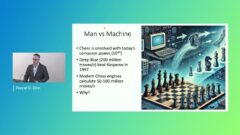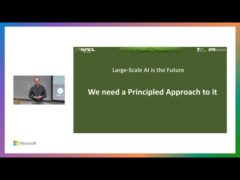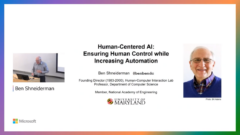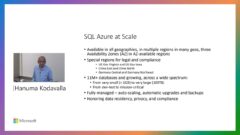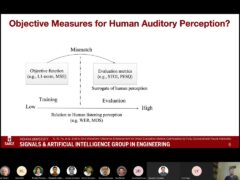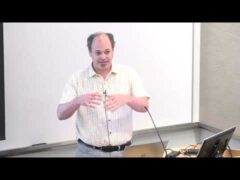Recent Efforts Towards Efficient And Scalable Neural Waveform Coding
- Kai Zhen | Indiana University
Acoustic signal compression techniques, converting the floating-point waveform into the bitstream representation, serve a cornerstone in the current data storage and telecommunication infrastructure. The rise of data-driven approaches for acoustic coding systems brings in not only potentials but also challenges, among which the model complexity is a major concern: on the one hand, this general-purpose computational paradigm features the performance superiority; on the other hand, most codecs are deployed on low power devices which barely afford the overwhelming computational overhead. In this talk, I will introduce several of our recent efforts towards a better trade-off between performance and efficiency for neural speech/audio coding. I will present on cascaded cross-module residual learning to conduct multistage quantization in deep learning techniques; in addition, a collaborative quantization scheme will be talked about to simultaneously binarize linear predictive coefficients and the corresponding residuals. If time permits, a novel perceptually salient objective function with a psychoacoustical calibration will also be discussed.
발표자 세부 정보
Kai Zhen is a Ph.D. candidate (ABD), advised by Prof. Minje Kim, in Computer Science and Cognitive Science at Indiana University. He has been working on efficient and scalable neural waveform coding systems. He had two machine learning and relevance internships at LinkedIn in 2018 and 2019, trailed by an internship at Amazon Alexa in 2020.
시리즈: Microsoft Research Talks
-
Decoding the Human Brain – A Neurosurgeon’s Experience
- Dr. Pascal O. Zinn
-
-
-
-
-
-
Challenges in Evolving a Successful Database Product (SQL Server) to a Cloud Service (SQL Azure)
- Hanuma Kodavalla,
- Phil Bernstein
-
Improving text prediction accuracy using neurophysiology
- Sophia Mehdizadeh
-
Tongue-Gesture Recognition in Head-Mounted Displays
- Tan Gemicioglu
-
DIABLo: a Deep Individual-Agnostic Binaural Localizer
- Shoken Kaneko
-
-
-
-
Audio-based Toxic Language Detection
- Midia Yousefi
-
-
From SqueezeNet to SqueezeBERT: Developing Efficient Deep Neural Networks
- Forrest Iandola,
- Sujeeth Bharadwaj
-
Hope Speech and Help Speech: Surfacing Positivity Amidst Hate
- Ashique Khudabukhsh
-
-
-
Towards Mainstream Brain-Computer Interfaces (BCIs)
- Brendan Allison
-
-
-
-
Learning Structured Models for Safe Robot Control
- Subramanian Ramamoorthy
-

